Meet Ali Shuhaib, A Person with Hearing and Speech Impairment Breaking Barriers in the Workforce
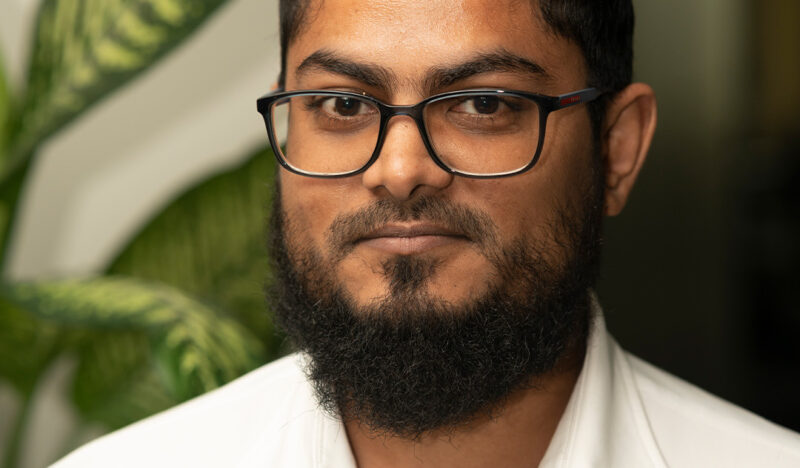
“Just because hearing impaired people doesn’t hear what is being said, doesn’t mean they don’t know how to read a room,” says Ali Shuhaib, a 32-year-old Human Resource Officer at STO with hearing and speech impairment.
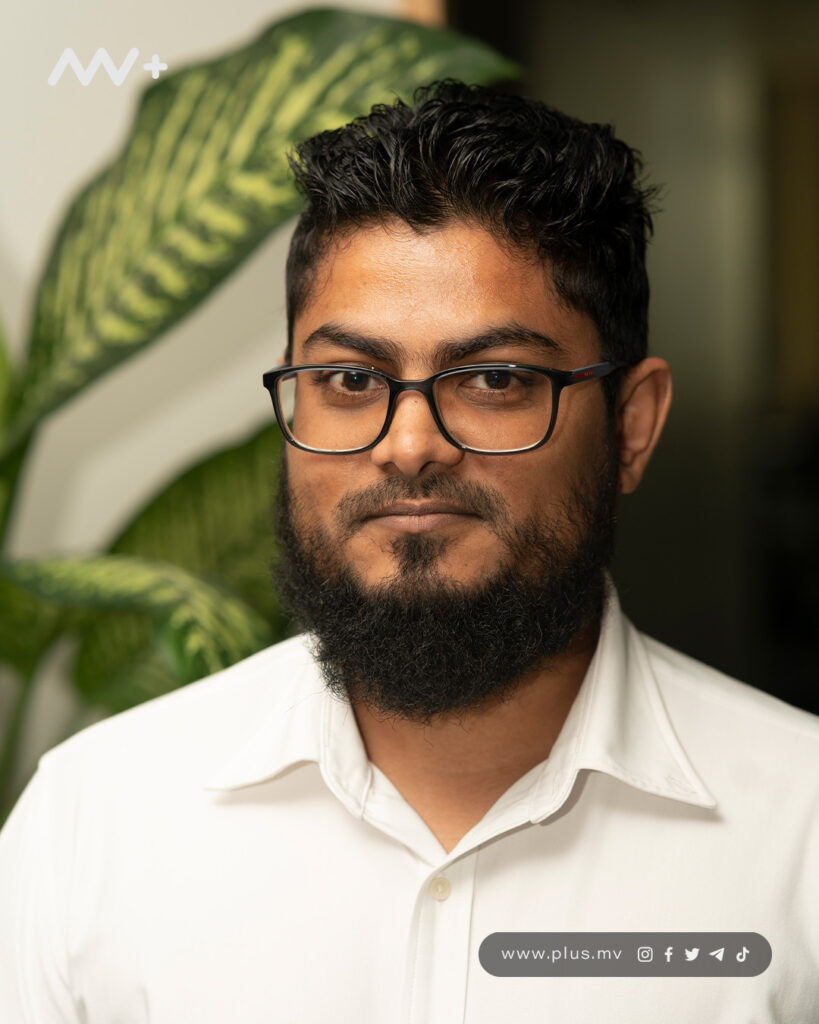
Shuhaib has been a part of the STO team for the past 8 years.
When asked about the working environment and his coworkers, Shuhaib was positive. He mentioned that everyone is nice and helpful. He feels that the working environment is friendly and welcoming, which is essential for people with disabilities. He added that his colleagues are supportive and accommodating, which makes it easier for him to work and be productive.

Regarding opportunities, Shuhaib shared, “I have enjoyed and been grateful for the opportunities I have been given and wish to further learn under my mentors and improve myself. I feel appreciated and happy to be a part of the STO family.”
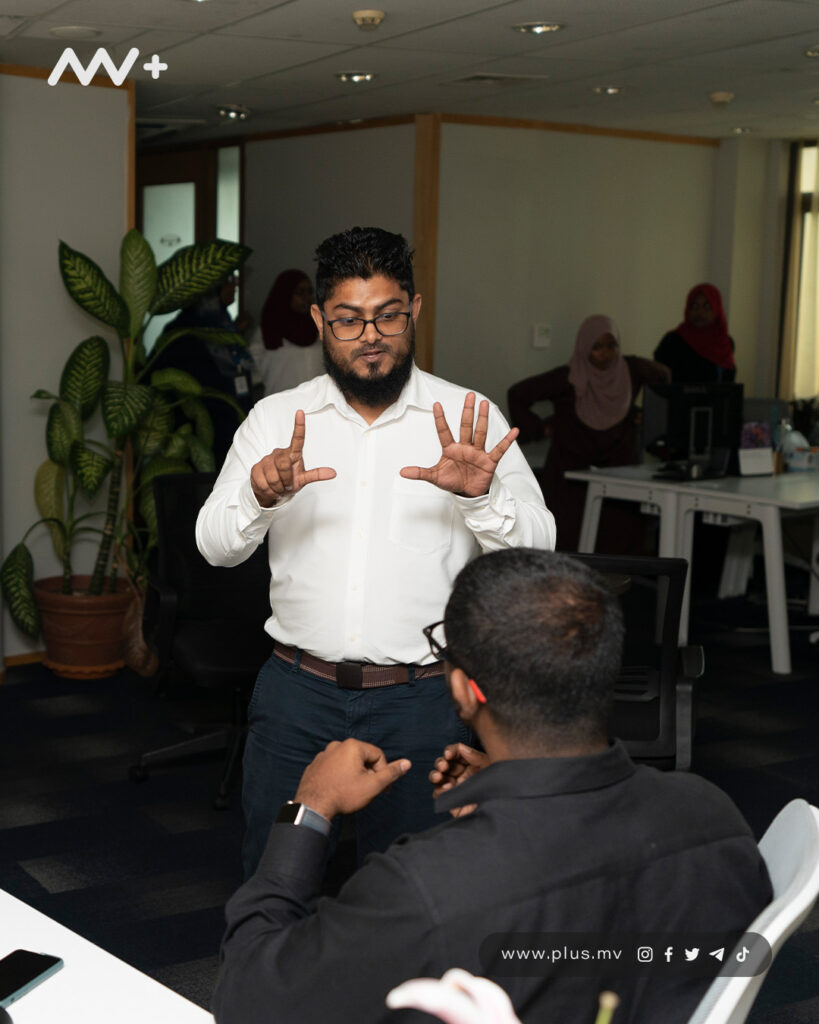
Shuhaib found his job at STO with the help of his school teachers who supported him in finding employment opportunities.
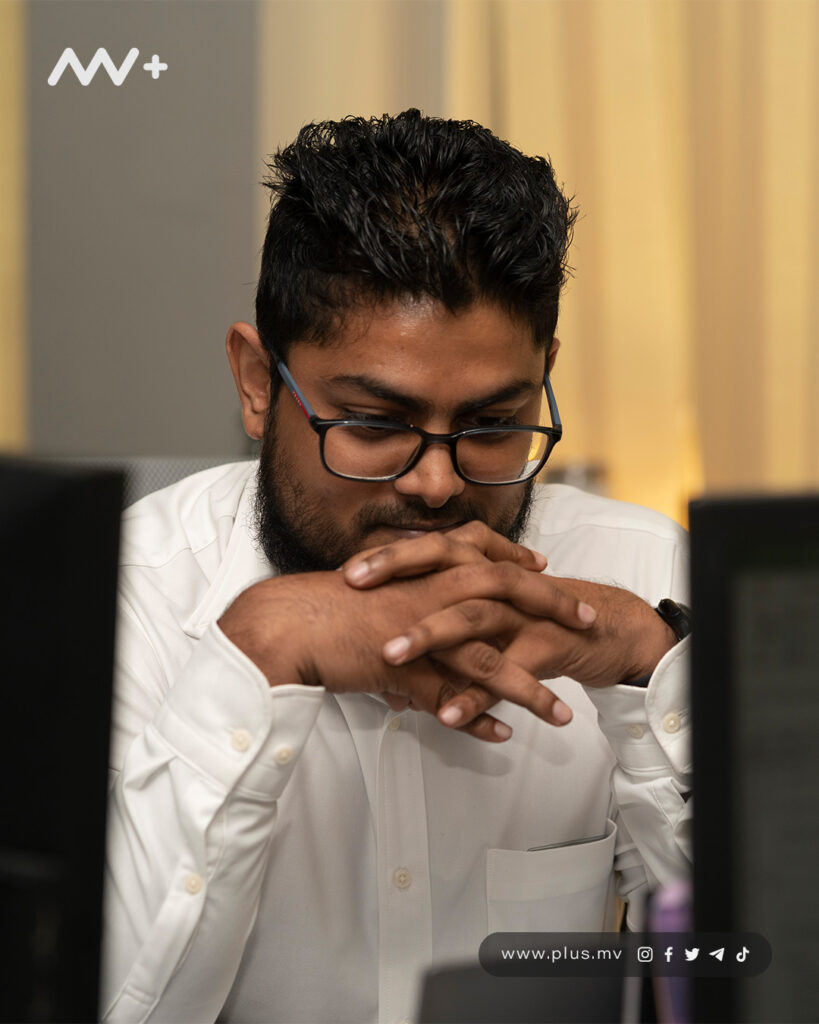
“I was a good student in school and had great mentors around me, which included Jamaluddin School Principal and my teachers.”
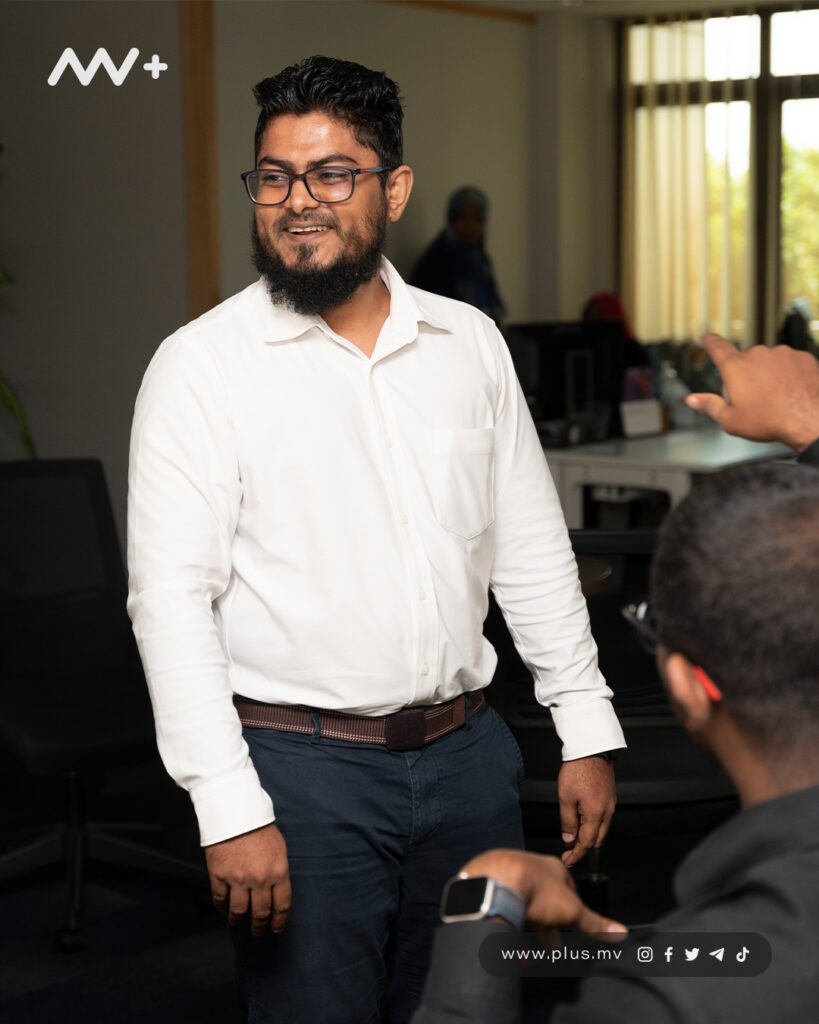
Shuhaib has some suggestions on how society can become more inclusive and accommodating to people with disabilities. One way is to teach sign language as an optional subject, which would shorten the gap between the hearing disability community and the general public.
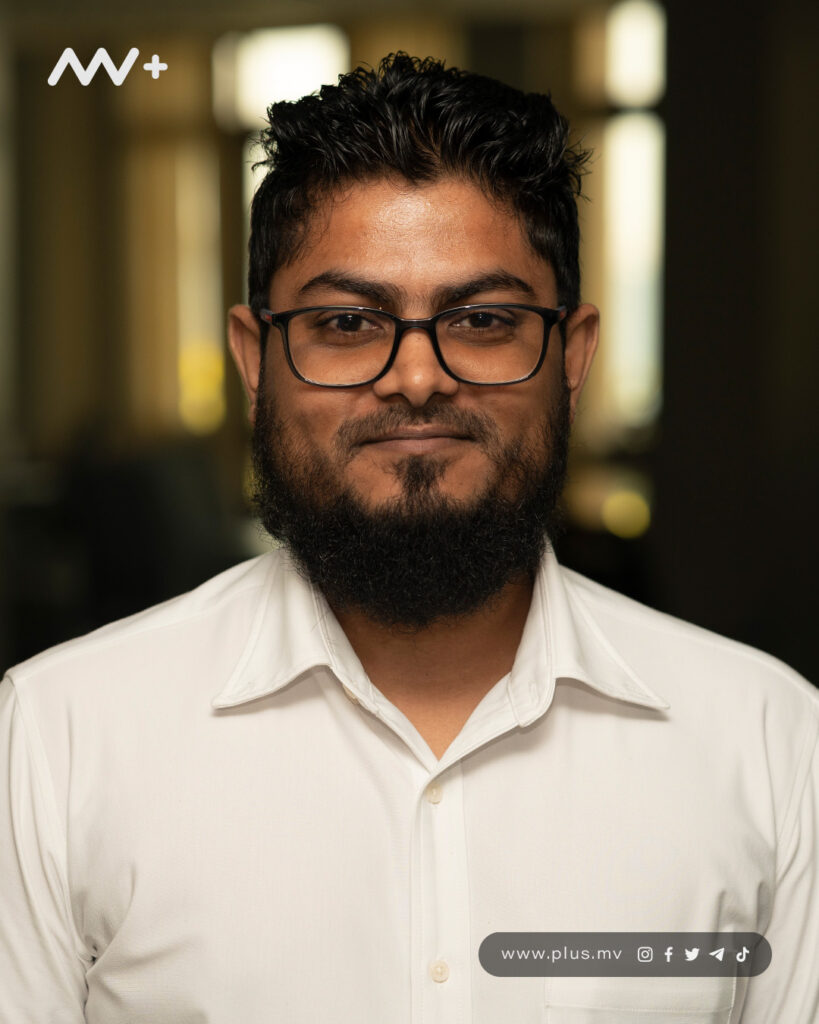
He further added, “providing better teachers for hearing disability students, so they learn better English and Dhivehi. This will make a world of difference when communicating with each other.”
Shuhaib believes this crucial, “I wish there were courses which I could take to improve my English, especially as its crucial skill to have to manage any and all tasks.”
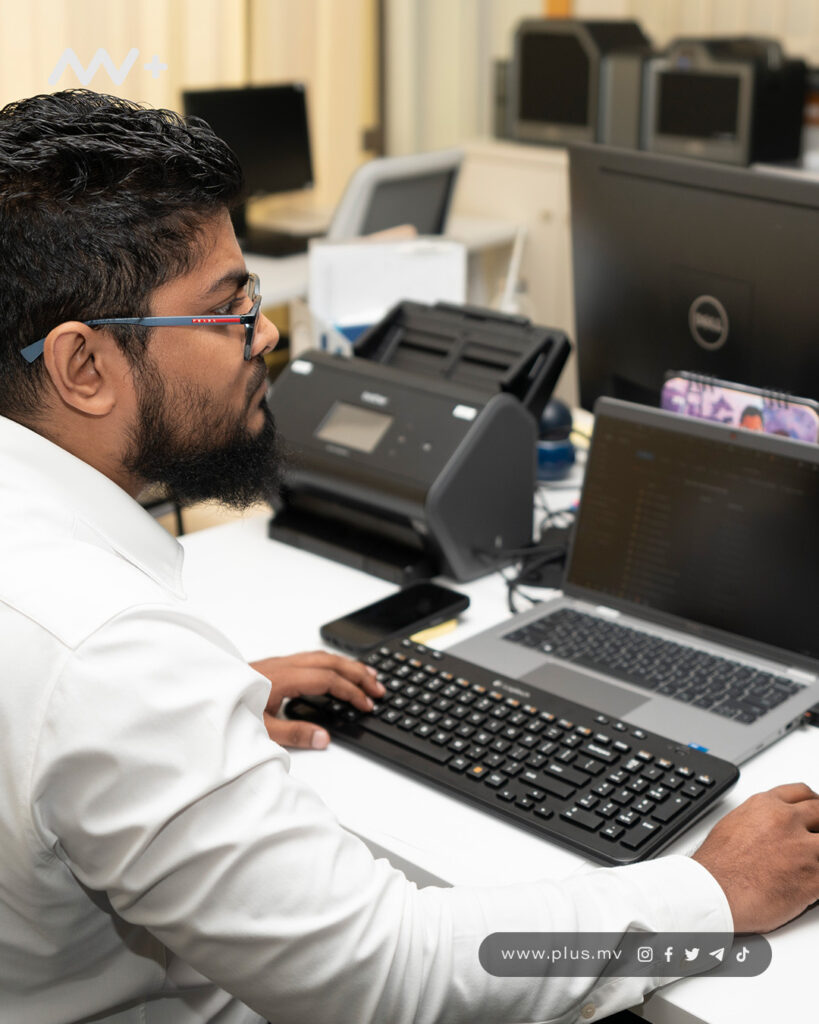
He stated, “filling the communication gaps can lead to more awareness and more inclusivity.”
Shuhaib also has experienced his fair share of prejudice throughout his life.

When asked about hurtful experiences he has experienced through society, Shuhaib revealed it is incredibly distressing when people publicly speak about PWDs like him in front of them without including them in the discussion, “it is something nobody would wish on another person. The self-doubt, insecurities, and isolated feelings which come from such situations.”
One of the biggest challenges Shuhaib faces as a PWD is fitting in and communicating with others. He says he prefers written forms of communication, like e-mails and messages.
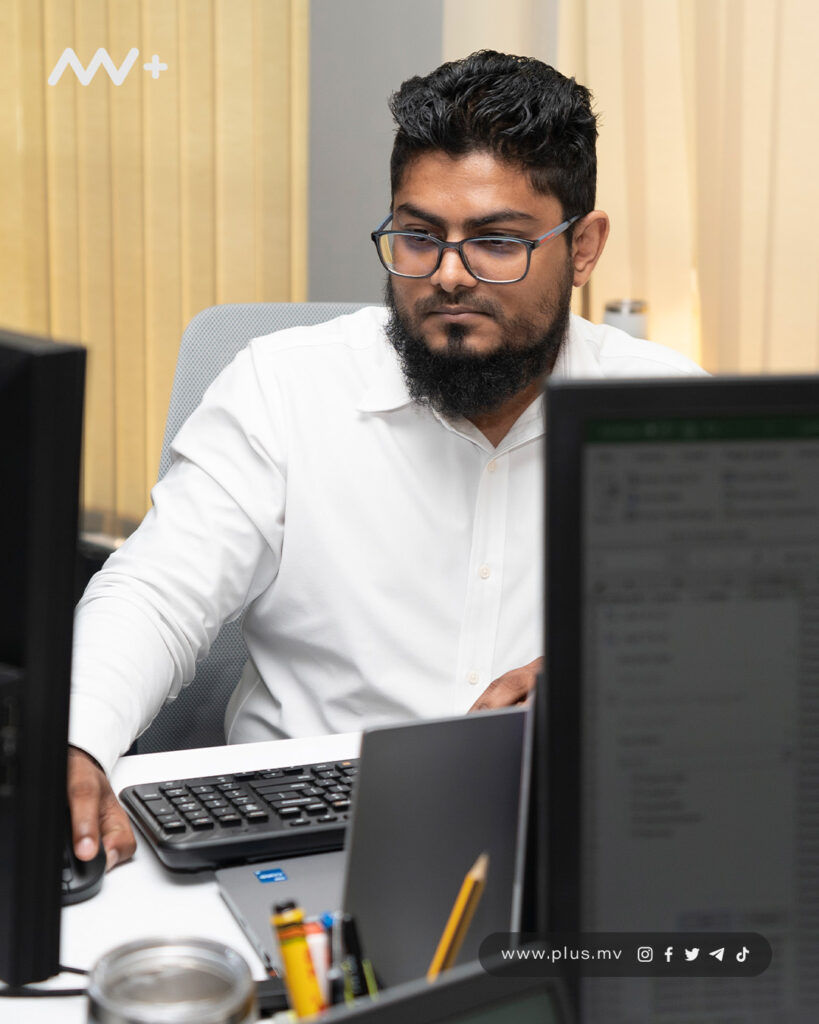
“Given my hearing disability, it’s difficult to communicate face to face, there is almost nobody who knows any sign language and few that have the patience to communicate in any form of expressive gesturing.”
Shuhaib also gave some advice to other PWDs, “You are good enough. Even if you meet people who will brush off your attempts at communication, don’t be discouraged, it says more about who they are as a person than you.”
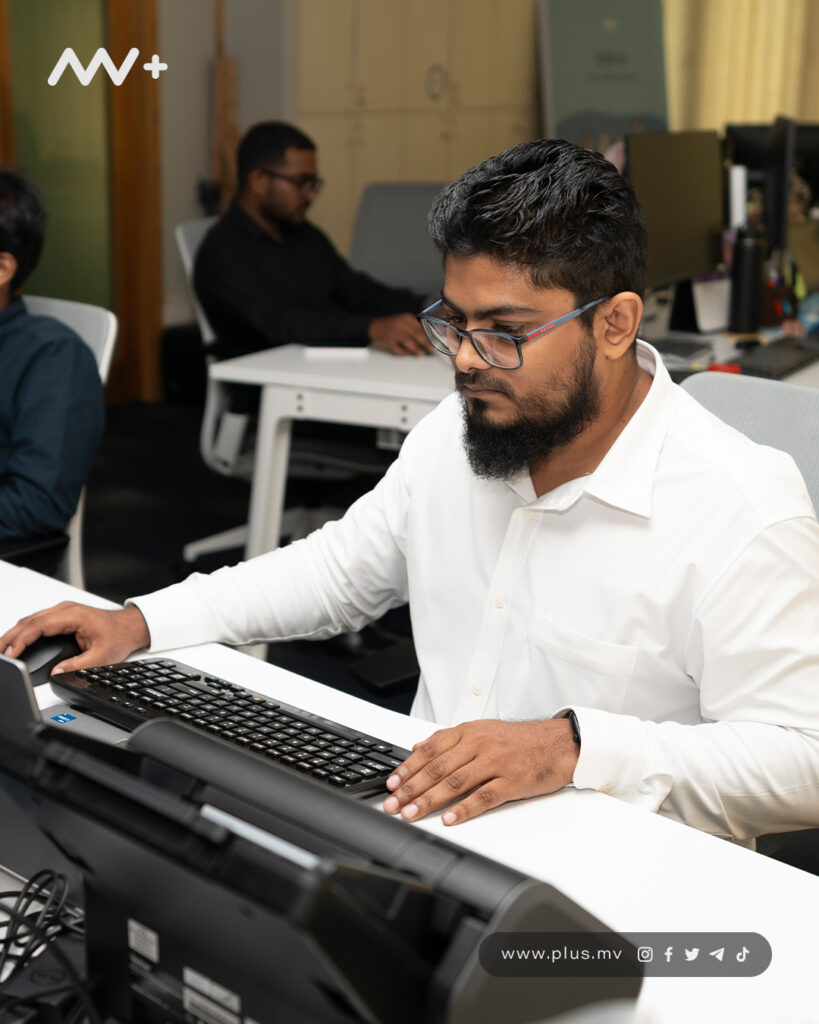
He further stated that coming across people who lack empathy and consideration is unavoidable, but there are just as many good people out there who will be willing to help you and appreciate your efforts.
Shuhaib’s experience working at STO is a shining example of the importance of creating an inclusive and accommodating working environment for PWDs. It shows that with the right support and opportunities, PWDs can excel in their careers and contribute significantly to the workforce.






